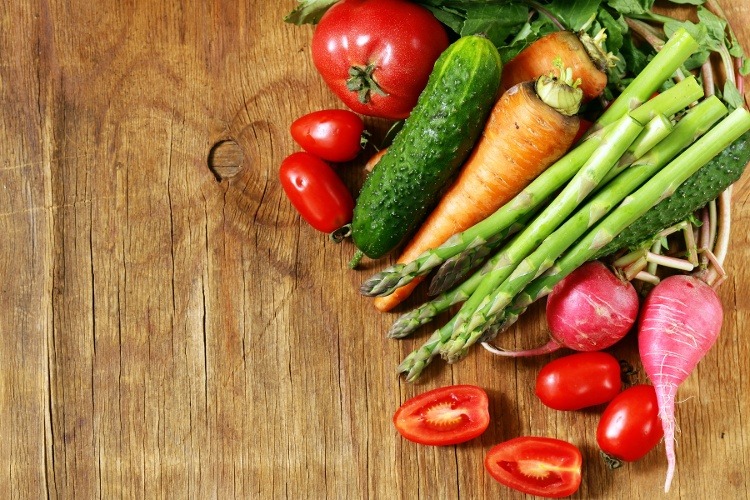
Maintaining a healthy diet is one of the best things seniors can do for their hearts. According to the National Institutes of Health (NIH), eating a healthy diet can reduce your risk for several different conditions, like heart disease, stroke, type-2 diabetes, bone loss, anemia, and some cancers. Adults over the age of 50 need the right amounts of calcium, folate, and Vitamins D, B6, and B12. The following foods are good sources of proper nutrition.
1. Asparagus
Asparagus is high in many different vitamins and minerals that have been linked to a healthy heart, like Vitamins C, E, and K. It has beta-carotene, folate, manganese, selenium, and zinc. It is considered to be an anti-inflammatory, and it contains several different antioxidants. According to some experts, eating a diet that is rich in antioxidant-containing foods can reduce your risk of cardiovascular disease.
2. Berries
Blueberries, strawberries, and blackberries are all high in Vitamin C, which works as an antioxidant in your body. They are also high in polyphenols, which, according to one study, play a role in protecting your cardiovascular health. Berries aren’t just good for your heart, they are good for your brain’s health as well. Another study found that blackberry extract could improve balance, coordination, and memory.
3. Dark Beans
Dark beans, like kidney beans and black beans, are high in Vitamin B, fiber, protein, and other minerals that are great for your heart. They are not high in saturated fat. Adding beans to your diet can help improve your blood cholesterol, which is a leading cause of heart disease. Eating beans can also help you feel fuller longer.
4. Dark Chocolate
Dark chocolate increases endorphin levels in your brain and causes your body to release more serotonin. Serotonin is a neurotransmitter, which is one of the body’s natural chemicals that affects mood, social behavior, appetite, digestion, sleep, and memory. Increased endorphin and serotonin levels means lower stress levels and more feelings of happiness and contentedness. Chronic stress has been linked to heart disease.
5. Leafy Greens
Leafy greens like collards, kale, mustard greens, and spinach are all high in Vitamin K, which helps to reduce your risk of cardiovascular disease by removing calcium buildup (plaque) in your arterial system. Vitamin K also benefits your body in other ways. It helps to heal injuries and regulates normal blood clotting. It also helps your body transport calcium, which aids in bone health and helps reduce your risk of falls and fractures.
6. Nuts
Nuts are great at lowering your low-density lipoprotein (LDL) levels, also known as your “bad” cholesterol levels. Having high levels of LDL has been linked to angina (chest pain), Coronary Heart Disease, heart attack, and stroke. Adding more nuts to your diet has been linked to lower levels of inflammation related to heart disease. Eating nuts can also reduce your risk of developing blood clots that could lead to a heart attack.
7. Oily Fish
Fish, particularly oily fish, contains alpha-linolenic acid (omega-3 fatty acid), one of the fatty acids that is essential for a healthy diet. Omega-3s can help prevent inflammation that could damage blood vessels and cause heart disease and stroke. They also lower your blood pressure, reduce blood clotting, and reduce irregular heartbeats. Since these fatty acids are not naturally occurring in the body, you should make sure to include them in your diet. Eat oily fish like herring, kippers, mackerel, pilchards, sardines, salmon, and trout.
8. Red and Pink Fruits and Vegetables
Lycopene, which has been linked to lowering your risk of stroke, is an antioxidant that is found in red and pink foods, like tomatoes, watermelon, papaya, and grapefruit. Lycopene is a naturally occurring pigment that gives certain fruits and vegetables their reddish color. These antioxidant-rich pink and red foods are known as carotenoids. Tomatoes contain higher levels of lycopene than any other food.
9. Red Wine
While you should always consume alcohol in moderation, several experts say that drinking one glass of red wine a day along with a healthy meal could reduce your risk of heart disease. Red wine contains antioxidants and resveratrol, a type of natural phenol that may help prevent blood vessel damage, reduce LDL cholesterol, and prevent blood clots.
10. Whole Grains
Whole grains like barley, brown rice, and oatmeal, are complex carbohydrates. Your body processes complex carbs slower than it processes simple sugars, like fructose and sucrose. Because of this fact, you get more nutrients from foods that have complex carbs. Eating complex carbs can help your body produce more serotonin. Complex carbs can also help your body pull more vitamins and minerals from your meals.

GOOD! This article is helpful, and written in an easy to understand format! Thank you so much, Dawn Owens!!
Incredible list! These are amazing for seniors who are at risk of poor health or cognitive decline. Dark chocolates are one of the best snacks to fulfill afternoon or midnight cravings for seniors if they want to maintain a normal weight. Red wine has many health benefits, but it is better for seniors to consult their nutritionist first.